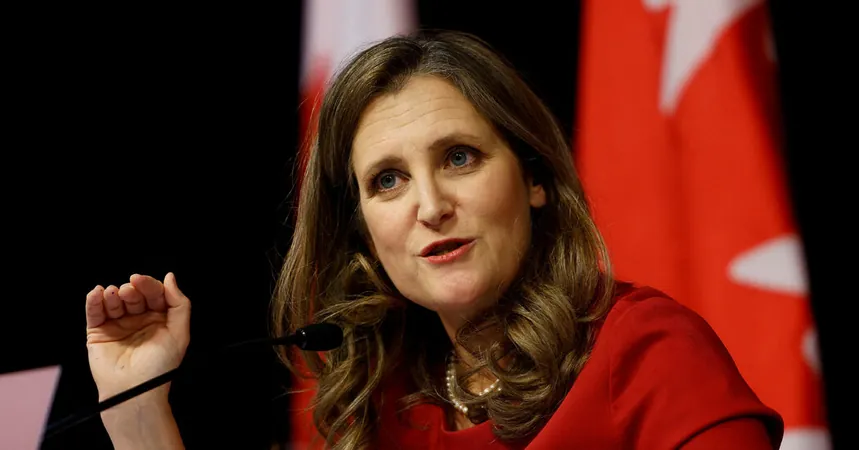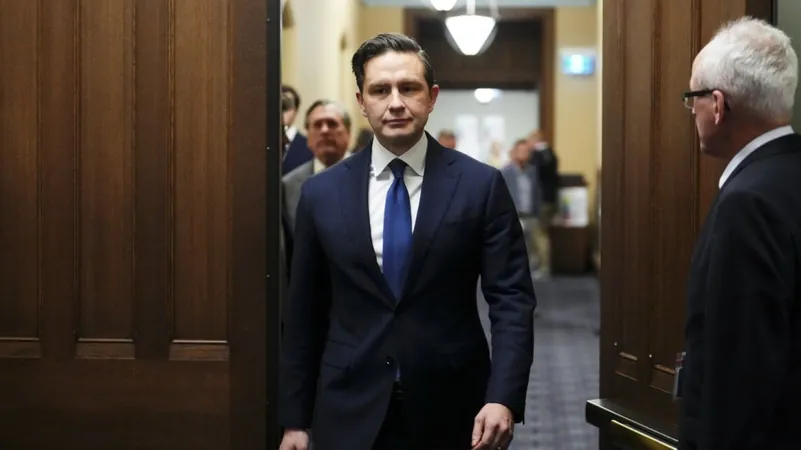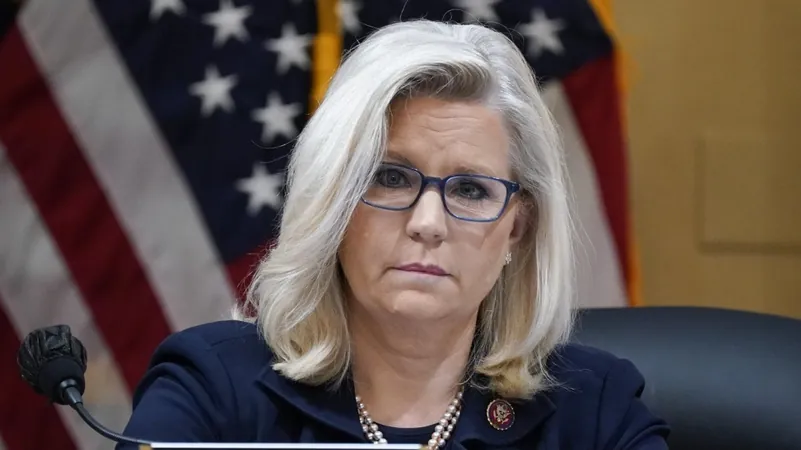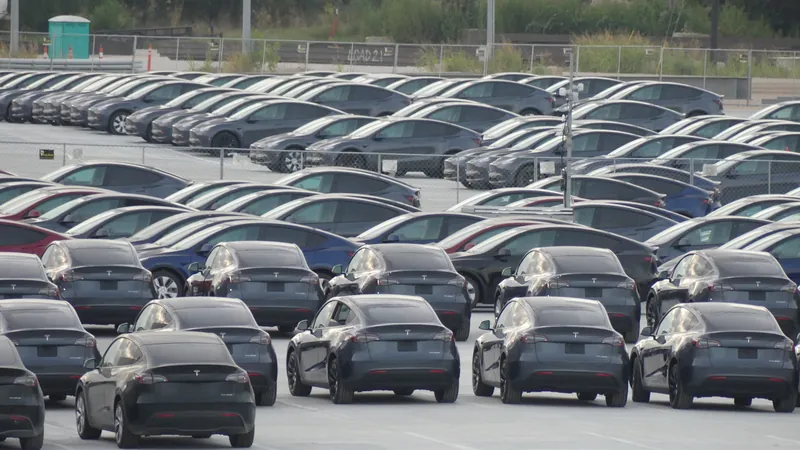
Shockwaves in Canada: Deputy Prime Minister Freeland Resigns — What This Means for Trudeau's Leadership!
2024-12-17
Author: Benjamin
Shockwaves in Canada: Deputy Prime Minister Freeland Resigns
In a stunning political shake-up, Deputy Prime Minister Chrystia Freeland has resigned, posing a serious threat to Prime Minister Justin Trudeau’s grip on power. Her departure comes at a precarious time for Canada, as the nation braces for potential economic upheaval under the incoming Trump administration.
Tariff Threats and Economic Uncertainty
President-elect Donald J. Trump has made it clear that he intends to impose a staggering 25% tariff on goods imported from Canada and Mexico unless both countries take significant action to address the influx of undocumented migrants and drugs into the U.S. This ultimatum has created a climate of uncertainty and urgency, especially for Canadians who are concerned about the repercussions on their economy.
Freeland's Role and Resignation Critique
Freeland, who previously served as Finance Minister, played a crucial role in navigating these turbulent waters and had been spearheading efforts to fortify Canada’s responses to the Trump administration. However, her resignation letter critiqued Trudeau’s administration, accusing him of focusing on “costly political gimmicks” rather than addressing the pressing issues at hand.
Public Sentiment and Economic Concerns
She emphasized that Canadians are acutely aware when their leaders prioritize personal agendas over national concerns, stating, "The citizens know when we are working for them, and they equally know when we are focused on ourselves." Freeland expressed her strong opposition to Trudeau's proposed measures, such as a sales tax holiday and sending checks to taxpayers, which she believed would deepen the government’s deficit and weaken Canada’s position in negotiations with the United States.
Cabinet Instability and Political Pressure
Freeland's exit is compounded by the resignation of another prominent figure within Trudeau’s cabinet, Housing Minister Sean Fraser, marking a significant trend of high-profile departures from the administration. With four cabinet ministers having already signaled their intention not to seek re-election, the Trudeau government is facing increasing pressure and instability.
Trudeau's Leadership Challenges
The current political landscape suggests several potential scenarios for Trudeau. He may be forced to resign as Liberal leader due to internal party pressure, initiating a leadership contest in which Freeland could be a frontrunner. Alternatively, Trudeau might call for an early election to preempt further losses, but the question remains: will that strategy be enough to maintain public confidence?
Economic Implications of Freeland's Departure
The economic implications of Freeland’s resignation are already becoming evident. Trudeau's government had been planning to reveal commitments to bolster border security in Canada on the day of Freeland's departure, further illustrating the abrupt disruption in leadership at a crucial time. Analysts are skeptical about whether the administration can sustain the confidence of voters, especially with a projected federal deficit of approximately CAD 61.9 billion, overshadowing prior commitments to fiscal responsibility.
Freeland's Legacy and Future Prospects
Freeland, with a rich background in journalism and as a seasoned diplomat, had previously been a vital asset for Canada on the international stage. As a Ukrainian Canadian, she was heavily involved in addressing the challenges posed by Russia's aggression towards Ukraine, alongside her successful renegotiation of the North American Free Trade Agreement.
Conclusion: The Future of Trudeau's Government
Her resignation underscores a larger narrative of political volatility as Trudeau contemplates his next move amidst climbing opposition from the Conservative Party, led by Pierre Poilievre, which is currently polling significantly ahead. With potential elections looming, fierce debates on economic policy and relations with the United States will likely dominate political discourse leading up to October. As Trudeau's administration navigates these tumultuous waters, many Canadians are left wondering: can Trudeau maintain his leadership, or is this the beginning of the end for his government?









 Brasil (PT)
Brasil (PT)
 Canada (EN)
Canada (EN)
 Chile (ES)
Chile (ES)
 España (ES)
España (ES)
 France (FR)
France (FR)
 Hong Kong (EN)
Hong Kong (EN)
 Italia (IT)
Italia (IT)
 日本 (JA)
日本 (JA)
 Magyarország (HU)
Magyarország (HU)
 Norge (NO)
Norge (NO)
 Polska (PL)
Polska (PL)
 Schweiz (DE)
Schweiz (DE)
 Singapore (EN)
Singapore (EN)
 Sverige (SV)
Sverige (SV)
 Suomi (FI)
Suomi (FI)
 Türkiye (TR)
Türkiye (TR)